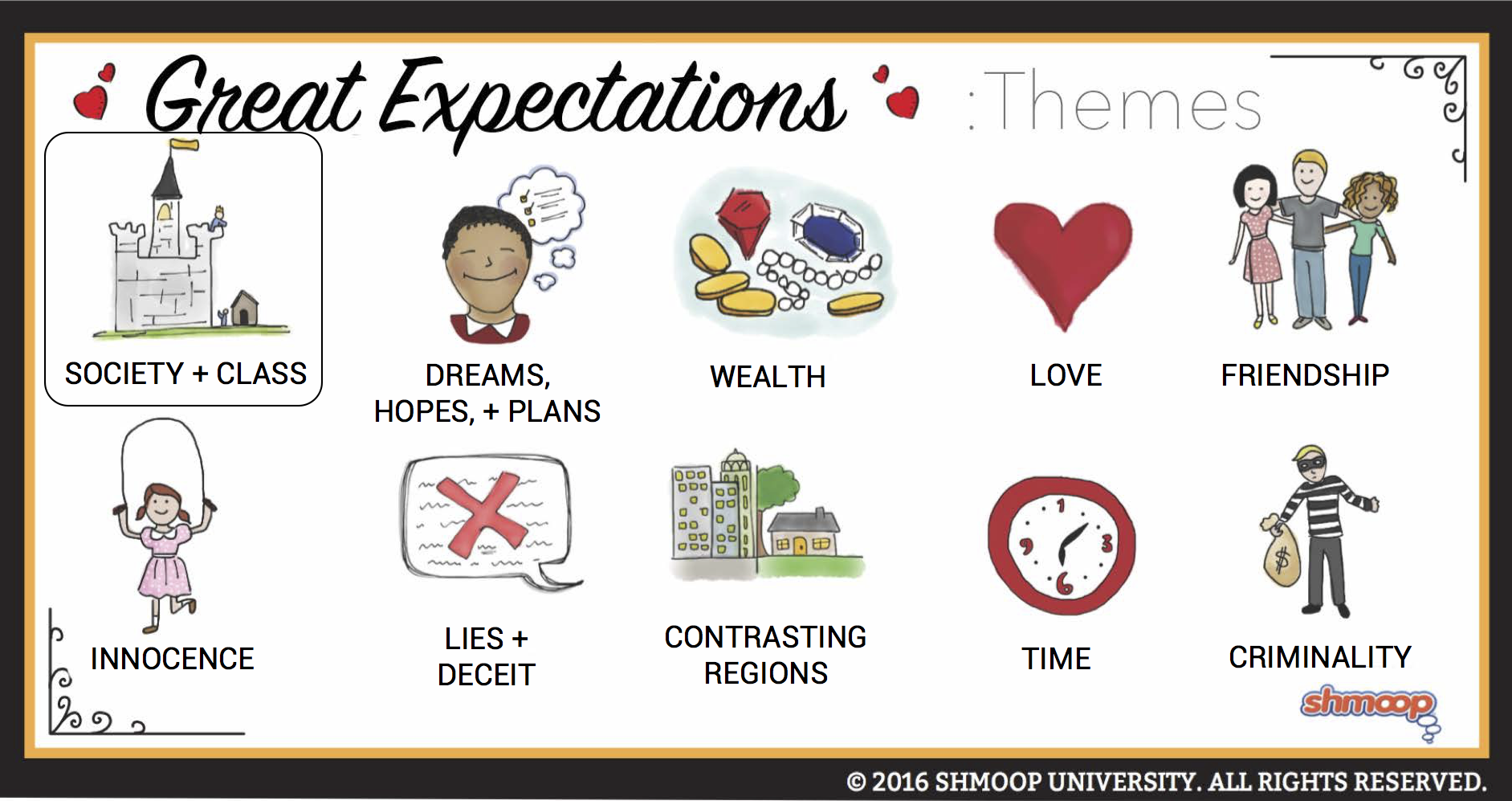 (Click the themes infographic to download.)
(Click the themes infographic to download.)
Pip desperately wants to be part of the cool crowd, but he doesn't have the right shoes, the right slang, or the right parents. Admit it: we've all been there. (Well, okay, maybe a few of you haven't, but you were probably the ones teasing Shmoop for reading too much in middle school, so the less said about that the better.) In Great Expectations, being a "gentleman" is basically equivalent to being part of the popular crowd. Just like a Mean Girls social climber, Pip learns that being well-liked is more about how you act than how you look. And no matter what you do, you won't be good enough for the head cheerleader—unless you get your author to rewrite your ending.
Questions About Society and Class
- What is "society" in Great Expectations, and where do we see it find it? What's the difference between the village society and the kind of "society" that Estella is going to be a part of? That Pip wants to be part of?
- How is "class" defined in the world of this novel, and how are we as readers introduced to the idea of class?
- What is the social hierarchy of the characters in this novel? Do any characters end up moving around in the hierarchy?
- Why does Biddy warn Pip against wanting to become a gentleman? Is she right to do so? Is she really jealous of Pip?
Chew on This
Identity has more to do with choice than birth in Dickens' Great Expectations.
Pip fails as a fortunate orphan but succeeds as a self-made man.